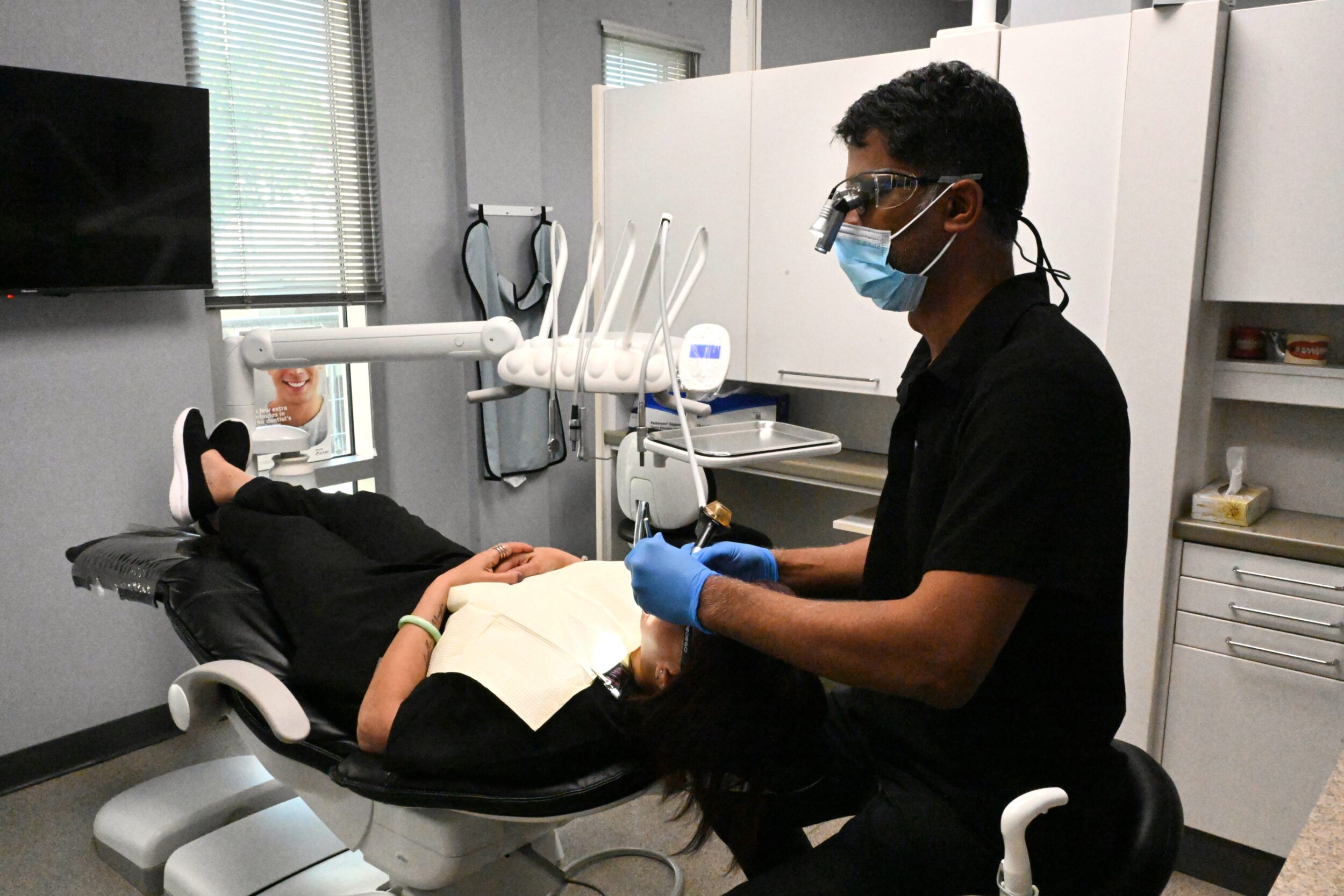Tongue Piercing
Teenagers have been getting tongue piercings in greater numbers. These piercings are often seen as harmless expressions of a teenager’s growing individuality. Teenagers are often allowed to pierce their tongues by their parents because the metal bar is temporary. Additionally, tongue bars are not as visible as tattoos or eyebrow piercings.
It is unfortunate that tongue piercings can have a serious (even fatal) effect on health. There are a number of good reasons why pediatric dentists recommend avoiding intraoral or perioral piercings in adolescents.

What are the dangers of tongue piercing?
It is becoming more common for unlicensed piercing parlors to open in all parts of the country. Tetanus, tuberculosis, and most commonly, hepatitis have been identified as potential transmission vectors in such parlors. Getting a tongue piercing can result in a number of painful conditions – even in a licensed parlor. Among these conditions are:
- Infections caused by bacteria
- Having a heart infection
- Hypersensitivity reactions (to the metal bar)
- A blood clot
- Gum recession/periodontitis
- Enunciation issues
- Scarring
- Blood poisoning
- Abscess in the brain
- Pain that persists over time
- Nerve damage (trigeminal neuralgia)
- Fractured/cracked teeth
In what ways does tongue piercing cause problems?
Using a clamp, the body piercer must hold the tongue steady before piercing it. The tongue is then punctured with a hollowed, pointed metal needle. Lastly, the piercer attaches the tongue bar to the needle’s bottom end and drags it upwards through the tongue. The tongue bar is then secured with two metal screw-on balls.
In most cases, severe pain and swelling last for several days after the piercing. The new holes in the tongue are also particularly susceptible to infection, since the oral cavity is home to a large number of bacteria colonies. As the body adjusts to a completely unnatural entity in the mouth, saliva production may increase in the medium term.
What are the long-term effects of tongue piercing?
There are many problems associated with tongue piercings over the long term. As the screw-on balls scrape against the tooth enamel, teeth become susceptible to decay, and gums become susceptible to periodontitis. The tongue bar continues to rub against soft tissue, which can cause infection.
When tongue bars are too long, they can tangle around the tongue or teeth. Similar to how an earring can be ripped out of the ear, a tongue bar can also be ripped out of the tongue. It is extremely painful, as well as difficult to repair.
Pediatric dentists and the American Dental Association (ADA) strongly oppose oral piercings.
Please contact our office if you are a concerned parent or would like a pediatric dentist to discuss tongue piercing with your teenager.